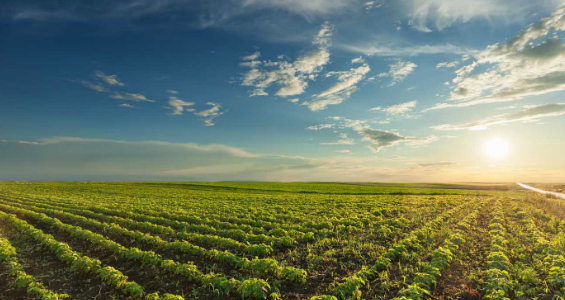Whether you are a family with deep connections to the land or an investor looking to maximize return, selecting the right tenant and lease structure is extremely important for the long-term success and legacy of your farmland.

The philosophy we utilize to manage approximately 10,000 acres (2021) of farmland for our clients is for the landowner to develop a long-term, mutually beneficial relationship with the tenant. It is important to remember fair lease rates are influenced by many factors including location, commodity prices, soil quality, etc. If you do not want to deal with the difficulty of tenant communication, lease writing, and determining fair rates, you may want to hire a farm management professional, such as Peoples Bank Wealth Management, to help you.
One of the first things we assess with our clients is their preferred lease type. Lease type can influence the tenant you select and best option for you will depend on your cash flow needs, risk tolerance, and other individual goals.
Four basic types of lease options
1. Cash Rent – This is the most popular lease type because it transfers the risk of the farm’s yields and outcomes to the tenant. In addition, this provides the landowner with the most predictable cash flows. These leases have a rent / acre which typically depends on the land’s location, soil quality, and commodity prices. Contracts can be structured for one year or for multiple years. Lease payments can be structured to be paid whenever you want but are typically paid annually or semiannually.
2. Variable – This lease combines features of the cash rent with features of a crop share arrangement (discussed later). This lease can be great for landowners who want some consistent income but want to participate in the upside earning potential of their farm. These leases typically have a lower base rent per acre compared to cash rent leases; however, they also have a revenue share arrangement, which rewards the landowner when the farm meets certain yield, revenue, or profitability measures.

3. Crop Share – Crop share arrangements are great for landowners who want to participate in the farm operations but want to mitigate their risk. Under this arrangement, the landowner and the tenant share the input costs (seed, fertilizer, weed control, etc.). The landowner provides the land, and the tenant provides equipment and labor. When the harvest is completed, the yield is split, and each party can market the harvest as they see fit. With these type of lease structures, you want to make sure that you include the responsibilities of each party to help avoid unnecessary conflict or confusion down the road.
4. Custom – Custom farming is for landowners who want to wholly participate in the farm operations but do want to provide the labor for putting the crops in and taking them out. Under this arrangement, the landowner hires an operator to complete the necessary tasks (planting, fertilizing, harvesting, etc.) The landowner pays the operator but also pays 100% of the farm input costs; however, the landowner also reaps 100% of the rewards of the yield each year.

Once a lease type has been selected, you want to evaluate your tenant and/operator. A couple of things to look for are:
1. Farming Operation – Even if you are simplifying using a cash rent lease, you want to ensure that your tenant or operator is utilizing proper techniques for drainage, weed control, fertility, and soil conservation. This is vital to help ensure that your land maintains good soil quality and productivity for years to come. Ignoring this can lead to lower production overtime and ultimately lower return for you as the landowner.
2. Communication – Remember the relationship between the tenant and landowner is a partnership. As the landowner, you want the ground to be as productive as possible so you can keep earning quality income off the land. The tenant wants to keep leasing the ground and wants the ground to be productive. Having open conversations about lease terms, drainage and land management, etc. will help ensure that each party is getting what they want out of the relationship.
Put Peoples Bank Wealth Management Group’s Experience & Knowledge to Work for You
Our team has decades of experience in the ag industry and will put that knowledge to work for you.
If you are interested in discussing our farm management services, please do not hesitate to reach out to us by filling out the Quick Contact form, calling us at (712) 722-0100 (toll-free at (877) 722-0101), or by emailing us at wealthmanagementgroup@peoples-ebank.com.









